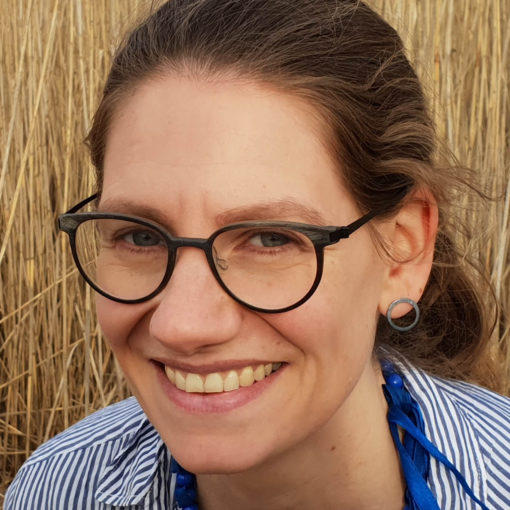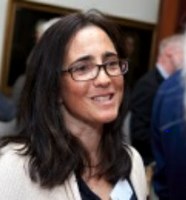PhD – Ovarian cancer cell biology and immunotherapies Monash University / Hudson Institute of Medical Research Awarded 2020
| Research Advisor | |
|---|---|
| Ovarian Cancer Research Foundation (OCRF) | |
Year entered into a non-academic position: 2023
Left academia after: 3 years of postdoctoral work
What’s your background?
I completed a Bachelor of Science (Medical Bioscience), then an Honours degree in ovarian cancer biology. I subsequently completed a PhD which was focused on developing an immunotherapeutic strategy to restore anti-tumour immunity in ovarian cancer. After my PhD, I completed my postdoctoral studies on ovarian cancer leader cells: an aggressive sub-population of cells that cause chemoresistance. We were looking at the cellular mechanisms leader cells use to drive ovarian cancer metastasis (spread) and drug resistance, and how we can therapeutically target these cells to improve current ovarian cancer treatment.
Why did you move away from academia?
I very much enjoyed my time in academia – I could delve deeply into the research and the constant discoveries were extremely exciting to me.
However, I wasn’t happy with the instability in academia, where I didn’t know I’d have a job each year. There was also the self-imposed poor work-life balance – work was my life and ultimately, I ended up becoming burnt out.
Is there anything you miss about academia?
I sometimes miss the laboratory environment and the thrill of discovery. I also enjoyed reading scientific literature that was relevant to my field, however I love that I can still do this in my current role but more broadly across the ovarian cancer research sector.
How did you get this job? Did you face any challenges when considering a move away from academia or applying for the role?
The main challenge was coming up with a way to convey how the skills I developed in academia were transferable to a research advisory role. The next challenge was convincing the interviewers that my skills could translate to a more diverse, strategy-focused position.
What motivated you to/why did you choose the sector you transitioned into?
research. Working for the OCRF has allowed me to channel my skills towards making a tangible difference in the lives of those affected by ovarian cancer.
Moving away from a specific ovarian cancer laboratory-based project, I could contribute to developing overarching research strategies that consider the entire ovarian cancer research ecosystem, in an organisation and sector that aligns with my values and ethics.
Transitioning into the nonprofit sector also allowed me to diversify my skill set and meet people I would not have had the opportunity to meet as a researcher.
Did you think you had the skills required for your current position before you started? Were you right?
I knew I had at least some of the skills required, but this new role has really highlighted to me the value of skills I acquired during my PhD and post-doc. It’s not just the research expertise, it’s also the communication skills, collaborative skills, drive and initiative, project and team management, and of course critical thinking and problem solving.
What is the workplace culture like? Please include comments on work-life balance, flexibility, remote working?
The workplace culture at OCRF is great – mental health is highly prioritised and work-life balance is valued. I would say the flexibility is similar to academia, where we’re able to start/finish early when we need to. A huge perk of this job is that I get to work at home multiple days a week (with my dog!).
Do people with a PhD frequently get hired in the company/sector?
Before I started I thought my role was quite unique, but as I met with more organisations in Australia, the US, and the UK, I realised that a lot of funding agencies and charities have PhDs placed within the organisation to assist with understanding scientific research, effective communication, and understanding the research sector.
What are your reflections on your career path?
If you told me a year ago I’d be out of the academic research sector and in a non-laboratory based role, I wouldn’t have believed it. This decision was such an unexpected turn, but I couldn’t be happier. I still get to work in a field that I’m passionate about, but from an entirely different perspective.
Do you have any advice for current graduate students and postdocs considering a career outside of academia?
Be open to diverse career paths. Your research skills are valuable beyond academia. Network actively, identify and showcase your transferable skills, and explore opportunities that align with your values and goals.
I also think it’s a common misconception that once you’ve left academia, you’re out for good. I don’t think this is true at all, and there are so many ways to nourish and build upon your research skills in roles outside of academia.
What do you know now that you wish you’d known when exploring a transition?
Be open to diverse career paths. Your research skills are valuable beyond academia. Network actively, identify and showcase your transferable skills, and explore opportunities that align with your values and goals.
Do you have any advice for current graduate students and postdocs considering a career outside of academia?
Be open to diverse career paths. Your research skills are valuable beyond academia. Network actively, identify and showcase your transferable skills, and explore opportunities that align with your values and goals.
What do you know now that you wish you’d known when exploring a transition?
I initially thought that working in academia vs. industry were the only two options I had. Build a strong professional network – your connections might lead you to unexpected opportunities. Go to career seminars and events, network and find out what options are available for you. Explore various roles and fields on platforms like LinkedIn, even if they don’t align with your top skills.
Can you recommend any relevant resources, organisations or events that might help somebody new to the sector find out more about it?
Become a part of the community you’re interested in working with, see if there are any speaking or volunteer opportunities, and directly reach out to the organisation for job prospects. You never know!
The Ovarian Cancer Research Foundation (OCRF) is a prominent funder of ovarian cancer research in Australia. Funded entirely through community fundraising, corporate partnerships, events, campaigns and private philanthropy, the OCRF has invested more than $30 million in grants since inception toward innovative cancer research for over 50 ovarian cancer research projects in Australia, providing employment for >100 career researchers in the field.
The OCRF invests in promising and innovative research that:
- Provides hope and personalised treatment options aimed at extending the lives of people currently fighting ovarian cancer
- Aims to develop a non-invasive, accessible and reliable early detection test that will dramatically increase 5-year survival rates
- Is focused on prevention and cure so that people can live without any threat of ovarian cancer
The OCRF’s International Scientific Advisory Committee provides technical expertise and guidance to direct funds toward research projects from researchers with a track record of excellence, global peer recognition, novel approaches and ideas, and established teams and laboratories.
Website: https://www.ocrf.com.au/





